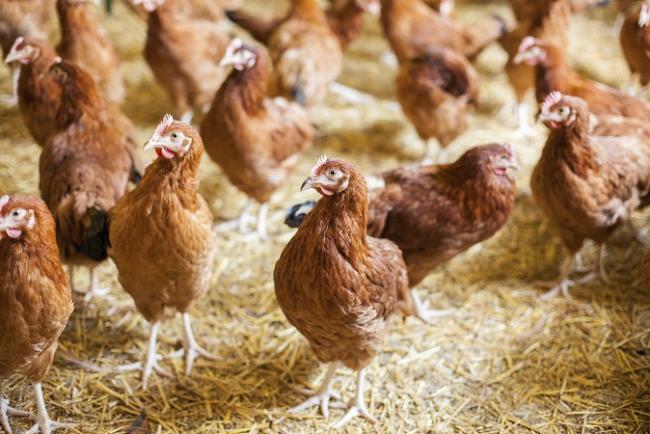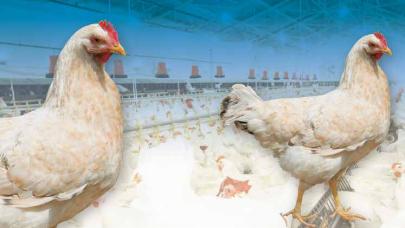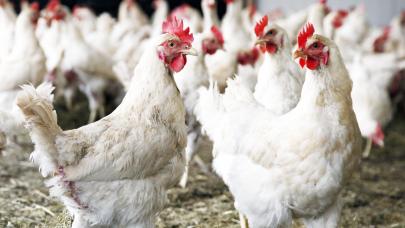VALORISED POULTRY EFFLUENT, IMPROVED SALUBRITY IN BUILDINGS, OPTIMISED HIGH-QUALITY PRODUCTION

Like any livestock farming, poultry farming has to comply with numerous health – and increasingly, environmental – standards. Poultry manure produces more ammonia emissions than any other type of livestock effluent. As we know, the smell in buildings – whether they are used for chickens, ducks, turkeys (...) – is particularly strong. A salubrious atmosphere has a positive impact on the animals, who as a result feel better, catch fewer diseases, and grow better and faster.
For poultry farms, it is economically beneficial to improve the agronomical value of its effluents in order to use it for fertilisation at the farm, or to sell it.
These days, poultry meat is the most popular, just after pork, and given the changing consumer demands, it is important to produce quality; to do so, whether raising poultry for egg-production or for meat, poultry feed has to be rich, balanced, and varied.
SOBAC markets a complex of micro-organisms, developed by Marcel Mézy Technologies, that improves the salubrity of buildings by reducing ammonia emissions and by transforming manure or slurry into humus, a true soil pantry. These technologies form a virtuous circle that improves the entire system by enabling ecologically efficient agriculture.
Bactériolit, by quickly transforming organic matter, livestock effluent (manure and slurry), into humus, increases their fertilisation value, and does so for the long term. These are interesting for livestock farmers on many fronts: manure easier to spread thus time savings; reduced leaching; improved salubrity in buildings due to less release of ammonia nitrogen and less smells; the animals spend a healthier time in the stalls resulting in reduced veterinary fees; high-quality plant production.
Bactériosol enables livestock farmers who don't use their effluents or don't have enough of them, to benefit from all the advantages of SOBAC natural fertilisation. Their output regains its nutritional quality, there is a better resistance to drought and diseases, rooting is more extensive, soils are more porous and therefore easier to work, resulting in better water absorption and less leaching. These improvements increase the overall profitability of the farm while complying with existing environmental requirements.
Testimonies and results (3)

Discover how Marcel Mézy technologies work
2017
Society SOBAC
Lioujas - FRANCE (12740)
Occitanie

82% less nitrogen lost into the air, and 39% more organic nitrogen
2006
ITAVI
Brittany - FRANCE (22440)
Bretagne

44% less mortality, 81% fewer defects, better Consumption Index (CI) thanks to Bactériolit
2016
Cédric Fontaine
La Réunion
La Réunion
NEWS AND PRESS RELEASE (0)
Your selection did not match any result.
Change your search criteria or
UPCOMING MEETINGS (0)
Your selection did not match any result.
Change your search criteria or

